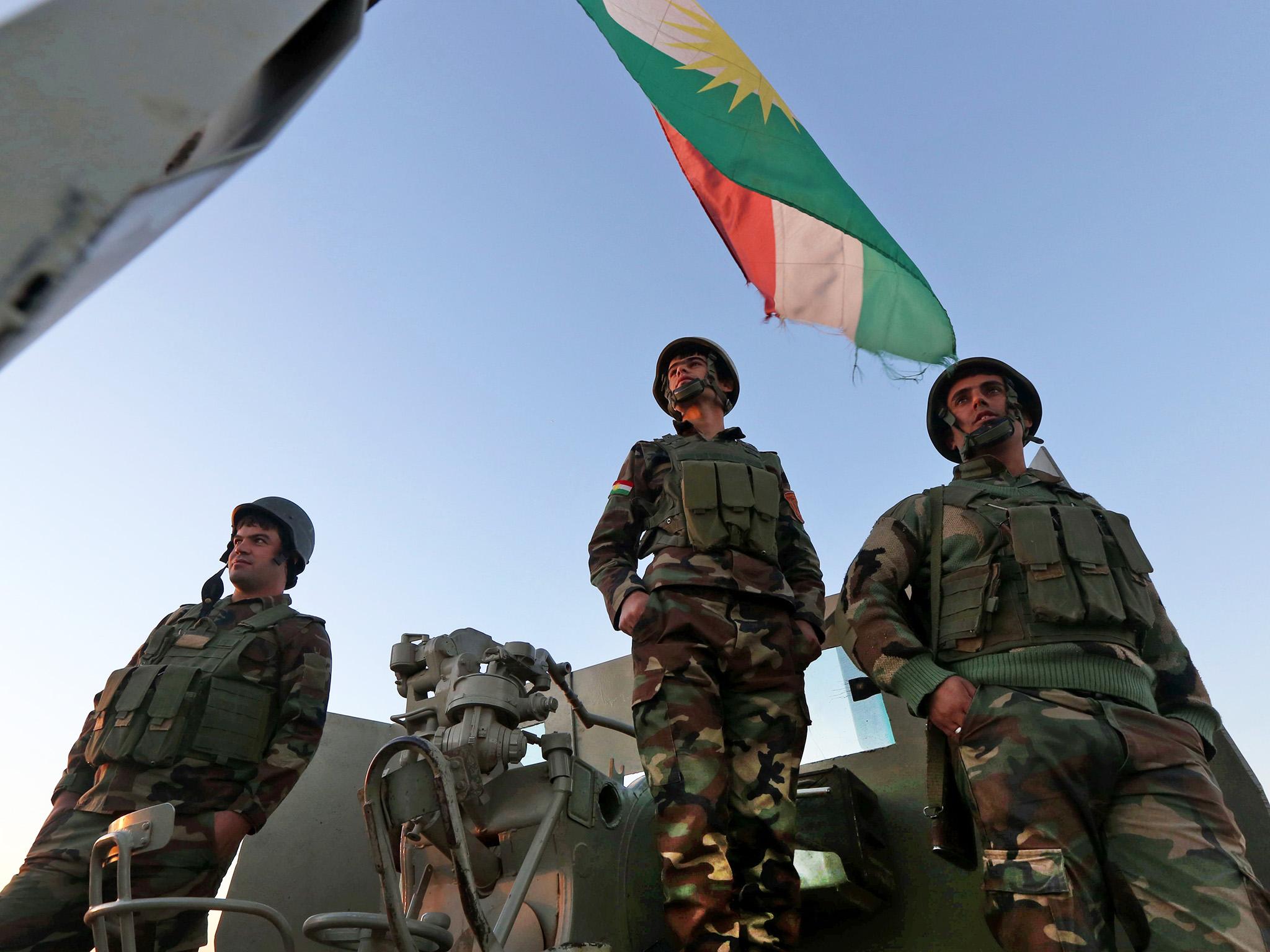Mosul offensive: US expects Isis will use chemical weapons
However, officials believe conventional weapons remain the biggest threat to Iraqi and Kurdish forces

Your support helps us to tell the story
From reproductive rights to climate change to Big Tech, The Independent is on the ground when the story is developing. Whether it's investigating the financials of Elon Musk's pro-Trump PAC or producing our latest documentary, 'The A Word', which shines a light on the American women fighting for reproductive rights, we know how important it is to parse out the facts from the messaging.
At such a critical moment in US history, we need reporters on the ground. Your donation allows us to keep sending journalists to speak to both sides of the story.
The Independent is trusted by Americans across the entire political spectrum. And unlike many other quality news outlets, we choose not to lock Americans out of our reporting and analysis with paywalls. We believe quality journalism should be available to everyone, paid for by those who can afford it.
Your support makes all the difference.Isis is likely to use chemical weapons in its attempt to repel an Iraqi-led offensive on the city of Mosul, US officials have said.
US forces are collecting fragments of shelling used by the group to test for chemical materials after recently confirming the presence of sulfur mustard agents on Isis munition fragments in a previously undisclosed incident on 5 October, officials told Reuters.
But they added that they believe the group has so far failed to develop chemical weapons with lethal affects, meaning the biggest threat to Iraqi and Kurdish forces is still conventional weapons.
Speaking of the October incident, one official told Reuters the group's use of chemical weapons is unsurprising, saying: “Given Isil's [Isis] reprehensible behavior and flagrant disregard for international standards and norms, this event is not surprising.”
An estimated 5,000 US forces are currently in Iraq, with more than 100 of them working alongside the Iraqi and Kurdish Peshmerga forces, advising commanders and helping them ensure coalition power hits the right targets - but they not operating on the front lines, according to officials.
The air and ground offensive to retake Mosul was announced on Monday by Iraqi Prime Minister Haider al-Abadi, and it constitutes the biggest military undertaking in Iraq since American forces left the country in 2011.
Yesterday France called for crisis meetings on how to protect the city’s population and on Iraq’s long-term future, after sources inside Mosul reported that Isis had started using civilians as human shields as Iraqi forces progress towards the city.
Foreign ministers from both Western and Middle Eastern countries, including the US, UK and Saudi Arabia, are set to meet in Paris on Thursday to discuss how to bring peace to Mosul, French Foreign Minister Jean-Marc Ayrault said.
The pace of the fight to retake Mosul from the Isis has slowed as Iraqi forces advancing to the east and south of the city began pushing towards larger villages and encountering civilian populations.
Several aid agencies have warned the offensive is likely to trigger a humanitarian crisis as citizens either get caught in the crossfire or try to flee fighting.
US President Barack Obama estimated last week that one million civilians were still in Mosul, creating a challenge for Iraq and its Western backers trying to expel the group through force.
Yesterday the EU’s security commissioner warned that violent extremists who left Europe to join Isis and are now coming home to flee the US-backed offensive on Mosul posed a “serious threat” to European security.
Join our commenting forum
Join thought-provoking conversations, follow other Independent readers and see their replies
Comments